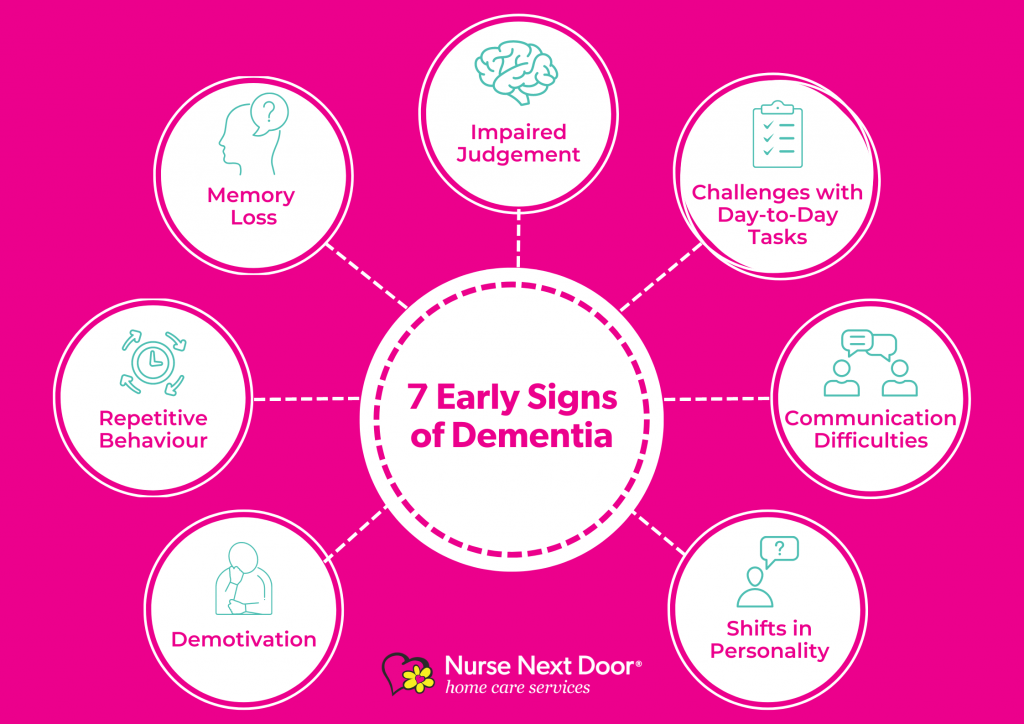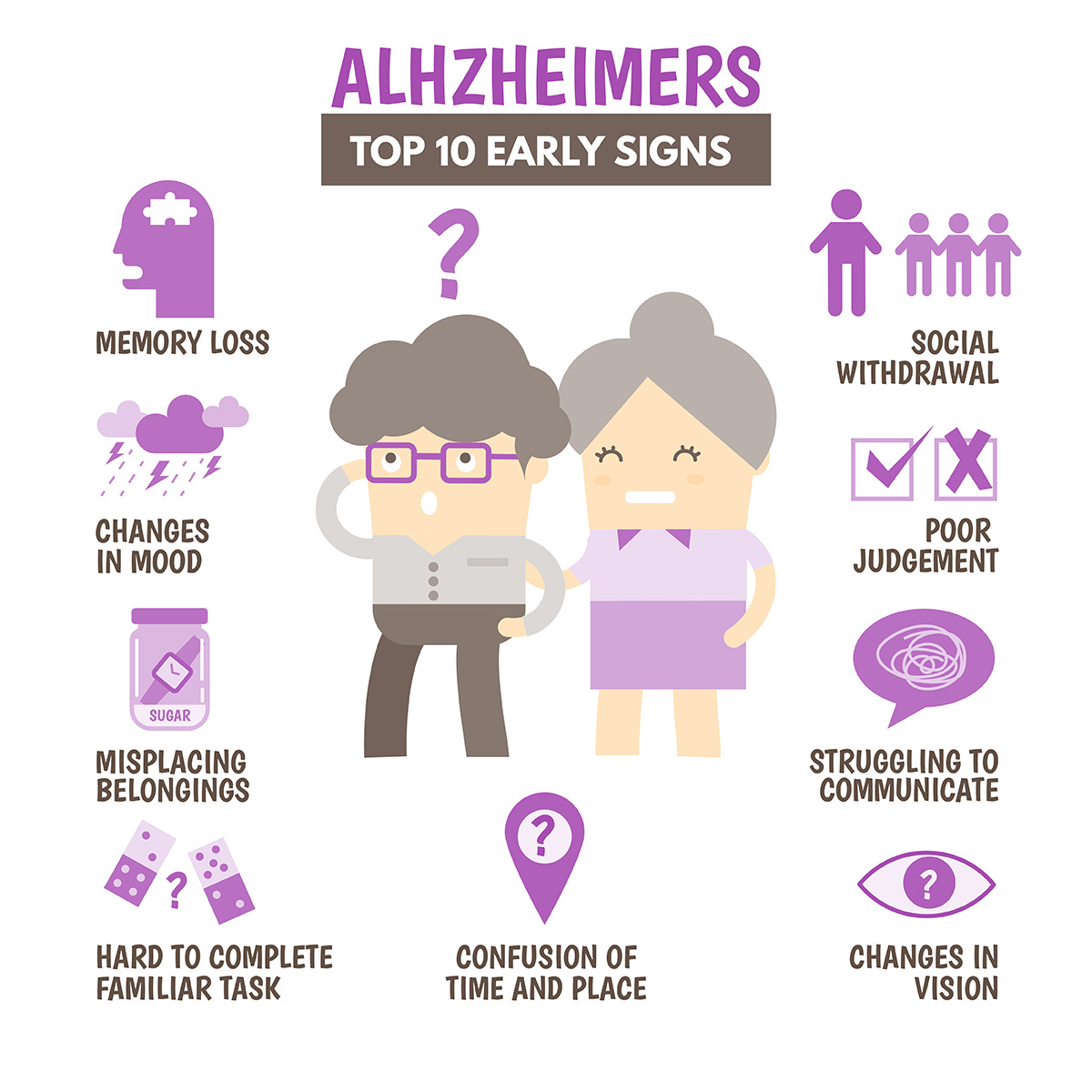Is There Hope for a Cure for Frontotemporal Dementia?
Is There Hope for a Cure for Frontotemporal Dementia?
Blog Article
Recognizing the Effect of Mental Deterioration on Every Day Life and Caregiving
Mental deterioration impacts day-to-day live in profound means, affecting not simply those identified yet likewise their caregivers. As cognitive decrease progresses, you may notice adjustments in communication and regular that difficulty both parties. Recognizing these shifts is important for maintaining self-respect and involvement. However how do you adjust your caregiving techniques to sustain somebody traversing this complex trip? The solutions may stun you as we discover the subtleties of this experience.
The Phases of Dementia and Their Results on Daily Life
As you browse the trip of mental deterioration, recognizing its phases can substantially impact how you take care of life. Mental deterioration generally proceeds through 3 main phases: early, center, and late. In the onset, you may discover periodic memory lapses or trouble discovering the right words. This can cause disappointment, but acknowledging these signs early aids you adjust your routine and seek support.
During the center phase, you'll experience more recognizable cognitive decrease. Daily tasks may become tough, and keeping your self-reliance may require adjustments. Utilizing reminders and streamlining your setting can assist.
In the late stage, people frequently need substantial help with everyday activities. Planning for care comes to be essential, concentrating on convenience and lifestyle. By comprehending these stages, you're far better outfitted to react proactively, ensuring you or your liked one can browse the difficulties with dignity and grace.

Adjustments in Communication and Social Interaction
Just how do modifications in interaction impact your day-to-day communications as mental deterioration progresses? As mental deterioration advancements, you could notice that easy conversations end up being difficult.
You may find it much easier to link via these ways rather than relying entirely on talked language. Listening skills can additionally change; you might find it more difficult to remember or adhere to discussions what was just said (Vascular Dementia). This can bring about misunderstandings or feelings of seclusion
Motivating persistence and creating a helpful atmosphere can aid. Engaging in tasks that cultivate link, like music or art, can boost social communications. Remember, keeping relationships is still possible; it's almost adjusting to new ways of interacting.
Influence on Daily Routines and Activities
While maneuvering daily regimens, you'll likely see that jobs you once completed easily come to be much more difficult as mental deterioration proceeds. Basic tasks like cooking, clothing, or even showering may require even more effort and time. You could discover on your own failing to remember actions in familiar routines or having a hard time to recall where you put things. This can bring about frustration not just for you, but likewise for those around you.
Adapting your environment can assist; for circumstances, identifying things or using checklists can streamline jobs. Involving in repetitive, organized activities can additionally supply comfort and a feeling of achievement. Remember, it's all right to ask for aid.
Behavior and emotional Obstacles
Steering through day-to-day regimens can produce not simply functional challenges, yet likewise psychological and behavioral ones. You could observe changes in state of mind, such as enhanced anxiousness or aggravation, which can originate from confusion or problem in completing jobs. As you navigate these minutes, it is important to identify that your loved one might express their sensations with habits like frustration or withdrawal.
These psychological responses can be unforeseeable and may arise without warning, leaving you both sensation overwhelmed. You might discover that familiar atmospheres or routines can help lower anxiety, yet keeping persistence ends up being significant. It is very important to verify their feelings, even if you don't totally understand them.
The Function of Caregivers in Supporting Individuals With Dementia
As a caregiver, you play a crucial duty in supplying psychological assistance for people with dementia. Establishing daily care routines can create a sense of stability and comfort, assisting to alleviate their anxiousness. By recognizing their demands and using effective methods, you can significantly improve their high quality of life.
Psychological Support Techniques
When caring for a person with mental deterioration, understanding the emotional landscape is necessary for giving reliable support. You'll my review here frequently find that patience and empathy go a long way. Validate their feelings; if they share confusion or aggravation, acknowledge it without dismissing their feelings. Straightforward gestures, like holding their hand or maintaining eye contact, can produce a complacency. Attempt to involve in activities that they delight in, as this can spark joy and link. Keep in mind to interact clearly and gradually, making use of a tranquil tone. Motivate expression through songs or art, which can act as a powerful electrical outlet. Eventually, don't neglect to care for your own psychological needs; looking for support on your own can boost your capability to look after them.
Daily Care Routines
Developing everyday care routines is crucial for giving security and convenience to individuals with mental deterioration, as these regimens can help in reducing confusion and anxiousness. You can start by laying out a consistent routine for dishes, activities, and rest. This predictability helps your loved one really feel a lot more protected and engaged.
Include familiar jobs, like folding washing or watering plants, which can stimulate favorable memories and foster a sense of achievement. Usage aesthetic cues, such as schedules or checklists, to lead them via the day.
Be flexible, though; adapt routines as required based upon their mood or energy levels. Frontotemporal Dementia. Keep in mind, your perseverance and understanding are essential in maneuvering their changing demands, ensuring they feel supported and valued throughout their every day life
Producing a Safe and Comfy Living Setting
Developing a comfortable and look what i found safe living atmosphere is important for individuals with dementia. You'll want to make home security adjustments that minimize threats and assure knowledge to give a feeling of convenience. By concentrating on these elements, you can aid develop a space that supports both security and wellness.
Home Security Modifications
As you browse the obstacles of dementia, making home safety modifications can substantially improve comfort and safety and security. Start by removing tripping dangers like rugs and clutter, assuring sidewalks are clear. Set up grab bars in shower rooms and non-slip mats in the shower to stop drops. Take into consideration making use of brighter illumination and night lights to boost exposure, especially throughout nighttime. Label important locations, such as the washroom and kitchen area, with clear signs to aid with positioning. Secure any sharp things or harmful materials unreachable. Additionally, analyze your home's locks and alarm systems to validate they're easy to use and provide assurance. These adjustments not just promote safety and security however also encourage self-reliance, allowing your liked one to find out this here feel more comfortable in their atmosphere.
Convenience and Experience
After ensuring a safe environment with essential alterations, cultivating convenience and experience is necessary for people with dementia. Maintain a regular regular to assist them feel grounded and lower anxiety. Involving in familiar activities, such as paying attention to music or gardening, can boost their sense of belonging, making their living environment a real shelter.
Techniques for Effective Caregiving and Assistance
While navigating the challenges of mental deterioration care can really feel frustrating, implementing reliable methods can significantly improve both the caretaker's and the client's day-to-day experience. Begin by developing a regimen; predictability helps lower stress and anxiety for both you and your loved one. Use clear, easy communication-- direct questions and short sentences can avoid complication.

Don't fail to remember to look after yourself; routine breaks and get in touch with support system. Sharing experiences with others in similar situations can give useful insights and emotional relief.
Lastly, stay person and versatile. Mental deterioration can bring uncertain modifications, so adjusting your method is crucial. By utilizing these techniques, you can foster a much more favorable environment that profits both you and your liked one.
Often Asked Questions

What Are the Various Kinds Of Mental Deterioration?
You'll find numerous kinds of dementia, consisting of Alzheimer's, vascular mental deterioration, Lewy body mental deterioration, and frontotemporal mental deterioration. Each kind impacts memory and cognitive function in different ways, so recognizing the differences is vital for correct medical diagnosis and care.
Exactly How Can I Help Someone With Early-Stage Mental Deterioration?
You can aid somebody with early-stage dementia by holding your horses, offering assistance, and urging them to take part in activities they enjoy. Maintaining regimens constant and maintaining open interaction can additionally make a considerable difference in their daily life.
Exist Financial Resources Available for Dementia Care?
Yes, there are funds offered for dementia treatment. You can check out entitlement program programs, nonprofit organizations, and insurance coverage options. It's likewise important to seek advice from regional companies for specific sources customized to your circumstance.
What Legal Factors To Consider Should Caregivers Be Conscious Of?
As a caregiver, you must think about power of attorney, healthcare proxies, and guardianship regulations. It's important to recognize the legal civil liberties and obligations you hold, ensuring your loved one receives appropriate treatment and defense.
Exactly How Can I Deal With Caretaker Anxiety?
You can manage caretaker stress by prioritizing self-care, looking for support from groups or close friends, setting practical expectations, taking breaks, and exercising leisure techniques. Bear in mind, your well-being matters simply as high as the person you're taking care of.
Recognizing the Impact of Mental Deterioration on Daily Life and Caregiving.
As you browse the journey of dementia, comprehending its phases can significantly influence how you handle daily life.While navigating daily routines, you'll likely observe that jobs you once completed easily come to be more difficult as mental deterioration proceeds.Establishing daily care routines is necessary for giving stability and comfort to individuals with mental deterioration, as these routines can assist decrease confusion and stress and anxiety.While navigating the obstacles of mental deterioration treatment can really feel frustrating, applying effective techniques can significantly enhance both the caregiver's and the individual's everyday experience.
Report this page